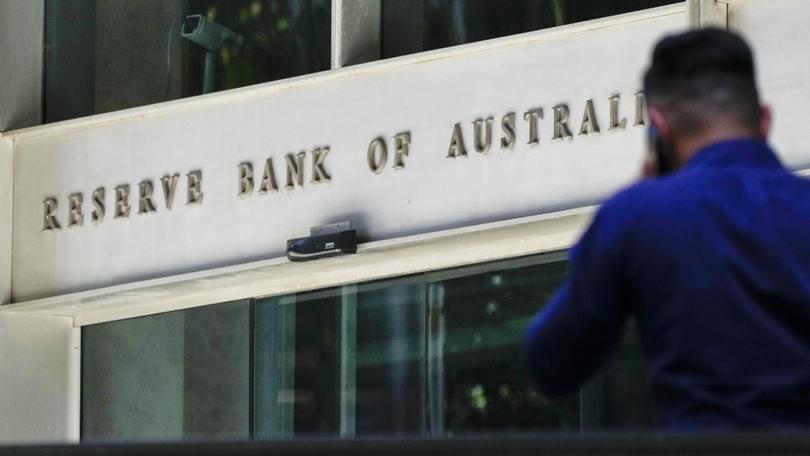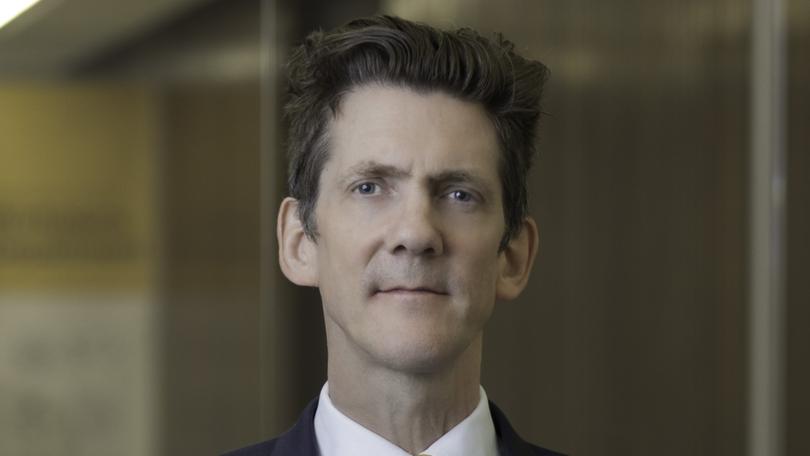Australia most exposed in the event of global trade war, Reserve Bank deputy warns
RBA deputy governor Andrew Hauser has revealed Australia’s reliance on iron ore exports makes it far more vulnerable to a trade shock.

The deputy governor of the Reserve Bank of Australia, Andrew Hauser, has warned that Australia is one of the most at-risk countries in the event of a global trade war due to its heavy reliance on exports to China.
The warning comes as the Reserve Bank kept interest rates unchanged yesterday, citing inflationary concerns, with economists worried that an increase on US tariffs by President-elect Donald Trump would be both inflationary and dampen growth.
Earlier this month, Mr Trump announced plans for an additional 10 per cent tariff on China, as well as placing tariffs on Mexico and Canada. The sanctions were tied to reducing illegal immigration and preventing the importation of the drug fentanyl. Mr Trump has threatened to put tariffs of as much as 60 per cent on Chinese goods during his campaign.
Sign up to The Nightly's newsletters.
Get the first look at the digital newspaper, curated daily stories and breaking headlines delivered to your inbox.
By continuing you agree to our Terms and Privacy Policy.In a speech to the Australian Business Economist’s dinner in Sydney, Mr Hauser said the country’s reliance on iron ore exports made it particularly vulnerable to a trade war that dampened Chinese demand.
Referencing a ranking by the Bank of International Settlements on exports at risk by country, Mr Hauser said Australia is the most exposed country to trade risk by a wide margin.
“Australia is by some distance the biggest outlier on this chart – in part reflecting the fact that over 80 per cent of Australia’s iron ore exports are directed to China, and China accounts for three-quarters of global iron ore imports,” Mr Hauser said.
However, Mr Hauser suggested that it was too early to tell whether the impact would be as severe, saying it would depend on the quantum of tariffs placed by the US, the degree of stimulus enacted by China in response to tariffs, and the likelihood of China finding alternative markets for its steel.
Mr Hauser referenced modelling by ANU economist Warwick McKibbin that suggested that if the more moderate outcomes of well flagged, less severe tariffs, trade re-routing and the currency stabilisation effect were to take place, the impact on Australia would be to subtract up to 0.2 per cent from GDP.
“Of course, that may not be the most likely outcome this time around. Relax one or more of those assumptions – a more comprehensive set of tariffs, less overseas stimulus, or a slower, more costly rerouting of trade flows, for example – and Australian activity is likely to take a hit,” he said.
While Australia was vulnerable to the follow on effects of a tariff war, it was one of the countries least exposed to US tariffs, and said that even if the US decided not to honour the bilateral free trade agreement, a blanket tariff would have little impact.
“The value of our exports that are directly exposed, as a share of GDP, is among the smallest of any developed country,” he said.

Mr Hauser said that comparisons to the trade war-induced Great Depression were not valid as the floating Australian dollar would now act as a stabiliser in the event of economic upheaval.
It was the RBA’s view that the flexible Australian dollar allowed the Bank to cut interest rates rapidly to support domestic demand during the Global Financial Crisis, while the stabilising effect of an appreciating dollar worked in the other direction during an era of massive stimulus by China that led to a mining boom.
“The shock-absorbers were again in action during this period: in particular, the progressive appreciation of the Australian dollar helped the economy to adjust to the increase in national income and demand without threatening the inflation target,” he said.
Speaking a day after the RBA cited inflation as a reason for not cutting interest rates this month, Mr Hauser noted that while tariffs are inflationary, an adjustment in global demand could mitigate their impact.
“Over time, tariffs — particularly if they are widespread — will impair the supply side of the world economy, disrupting global supply chains and reducing competition. And that effect, coupled with the potential for stronger overseas stimulus and greater pass-through of any exchange rate depreciation, will tend to push up on prices here too,” he said.
“Working against this upward pressure will be the downward effects of the weaker demand, and the potential diversion of cheaper foreign goods to Australian markets that previously would have been sold in higher tariff countries.”
While he said that the RBA will be closely monitoring developments, it was important not to “prejudge the implications of tariffs for policy.”
“The chances of being propelled into another global Depression are low. Our direct exposure to US tariffs is likely to be small. We have strong comparative advantages in raw materials and services that other countries need, both to power traditional industries and the industries of the future,” he said.
“We have a track record of nimbly reshaping our trading relationships, through a combination of market forces and proactive trade policy and negotiation. And our flexible exchange rate and independent monetary policy can serve as powerful shock-absorbers. Australian inflation could move in either direction.”

